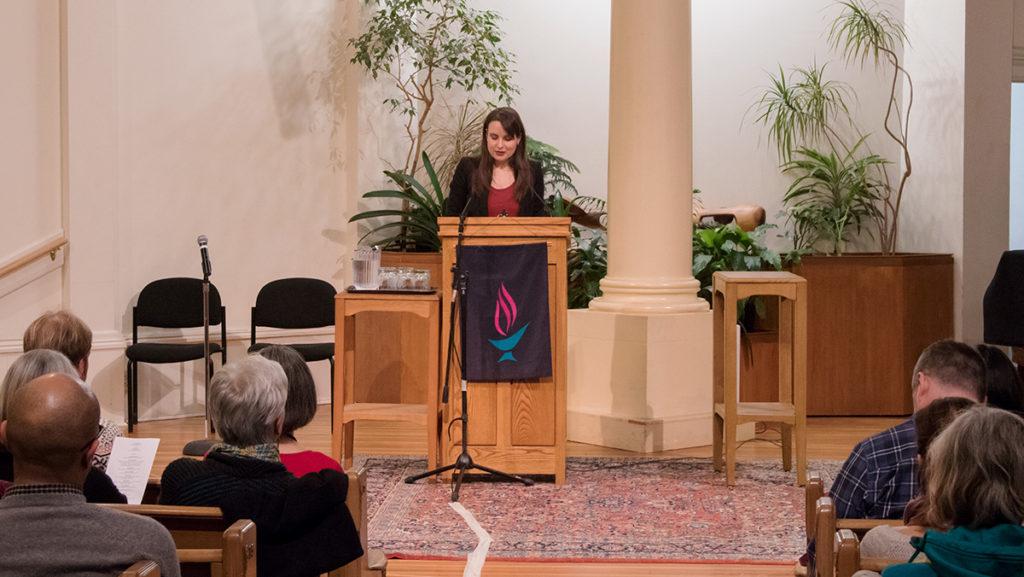On Martin Luther King Jr.’s birthday, Writers Resist members gathered at more than 90 locations throughout the United States in celebration of democratic ideals: justice, equality, and freedom of the press, speech, and expression. Audiences rallied, poems were read, donations were given. The energy was sometimes celebratory, sometimes aching, but wonderful, with the funds raised for our chosen charities heading off to work for those who needed them. And finally, we gathered up the crumpled programs, went to find our phones or sleepy children, and started asking each other as we trickled out doors on our way home or to the bars — what do we do next?
What does writing have to do with resisting racism, xenophobia, sexism, trans- and homophobia, ableism, injustice and pain? What good does anything, writing especially, do? Who’s listening? Why bother? I’m helpless, and maybe I have nothing to say. And … I am afraid. What do we do?
The answer lay, perhaps, in reading what had been written before.
We turned well-worn pages. We reread Margaret Atwood, who wrote “A word after a word after a word is power.” Audre Lorde, who said “the transformation of silence into language and action is an act of self-revelation and that always seems fraught with danger.” And investigative journalist David France, who, when gazing at an ACT UP “SILENCE=DEATH” banner while fighting for medical treatments in the midst of the AIDS crisis, wondered, “What kind of non-silence is being called for?”
With those sentences keeping me company, I hold hope that an affective and effective non-silence may be founded on an openness to our being educated: we must engage both our intellect and our empathy in order to continue Lorde’s transformation, and we must continue to use language. If we are silent when we could speak, it is easy for others to believe that we don’t exist, or to assume that we are being buoyed along on the stream of their action. And if we have the option to string together these words, create this power, then we must use it. We owe the use of our words to those who have been silenced. We owe them and ourselves our action.
When we write and read, occupying that all-important link between silence and action, we fold our experiences in with the world’s and with our audience’s, creating a kind of word-origami to offer on upturned palms. This is the documentation of a life, we say. This is the documentation of a world. I am here. This is the way we understand: flesh to flesh and word to mind.
Seek out the writing of those you have not yet listened to, and encourage others, even those not your friends, to do the same. Write not over, but with. Make an opportunity for another’s words. If you’ve thought you were useless, read and write until the right voices say to you, “You were here all along.” Write to drill down to your own essence, to strengthen and inspire your friends, but write, too, to welcome those who have not yet seen or heard. Make for them an entryway.
Whether journalism, oral history, legal briefs, personal essays, scripts, novels, poems, or a letter to your grandfather, in writing we create the outlines of a new body, one that can hold a limitless number of consciousnesses. We risk. We discover and build. We welcome others into this infinitely expandable incarnation.
Whether you consider yourself a writer or not, claim the voice of the written word. Read. Listen. Fold your own resistance to ignorance and injustice into every paper swan. Make the words so ubiquitous that they must be encountered.
To write is to resist the sense that you are powerless, that you are alone. And resistance does not end at the page’s margin: it continues. It leaves a record, and it shows a way. And in this way, we go on.
Jaime Warburton is an assistant professor in the Department of Writing. She hosted the Writer’s Resistance event on Jan. 15 in Ithaca.














